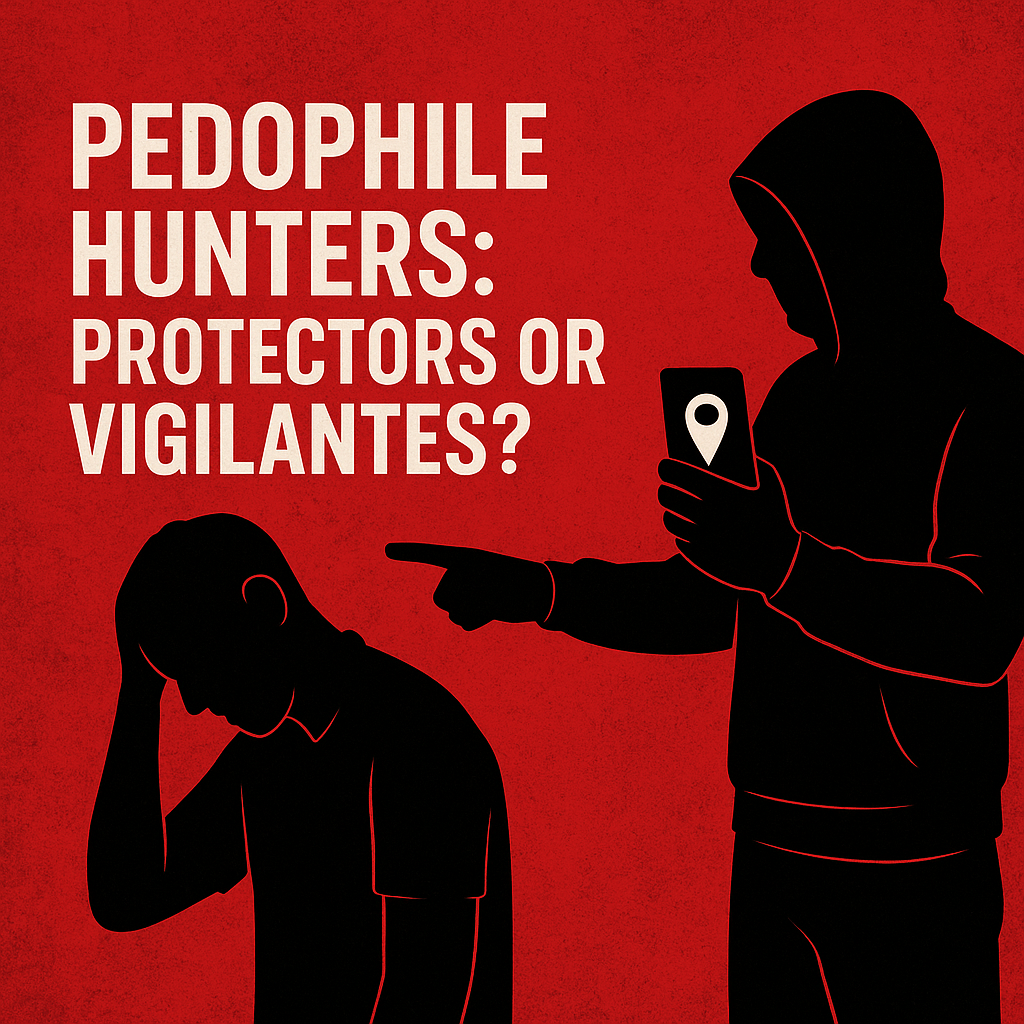In recent years, the rise of so-called pedophile hunters has captured public attention and stirred significant controversy. These are civilian groups who pose as minors online to lure and confront adults seeking sexual contact with children. Often recording their stings and posting them online, these groups claim they are doing what police either won’t or can’t. But are they safeguarding children — or endangering justice?
The Motivation: A Desire to Protect the Vulnerable:
At the heart of many pedophile hunter groups is a shared purpose: protecting children. Members typically believe they are stepping in to catch predators before they can do real harm. They argue that traditional law enforcement is too slow, under-resourced, or constrained by red tape to keep up with online predators.
Their tactics may include:
* Creating decoy social media profiles of underage children.
* Engaging in conversations with adults who make sexual advances.
* Arranging public confrontations, often with a camera.
* Sharing the footage online or turning evidence over to police.
Supporters often describe these groups as heroes — modern-day protectors exposing a dark and dangerous threat.
The Dangers: Vigilantism and Due Process:
However, critics — including law enforcement professionals and legal experts — warn that these groups can cause real harm.
1. Lack of Legal Training or Protocol
Pedophile hunters are not trained investigators. Their methods often violate proper legal procedures, meaning any evidence they gather may be inadmissible in court.
2. Risk of Mistaken Identity
There have been cases where innocent people were wrongly accused and publicly humiliated due to sloppy research or miscommunication. Some of these individuals have faced online harassment, loss of employment, and even suicide.
3. Obstructing Police Investigations
Confrontations posted online may alert other offenders to change their behaviour, making it harder for police to track real predators. Some investigations have been compromised because vigilantes interfered with ongoing undercover operations.
4. Motivations Can Be Problematic
Not all pedophile hunters are driven by altruism. Some seek social media fame, revenue from online views, or personal validation, turning serious allegations into public entertainment.
Law Enforcement’s View: Supportive but Cautious:
Police reactions vary. Some departments cooperate with hunter groups, using their evidence when legally viable. Others strongly discourage their activities, citing concerns about legality, safety, and misinformation. In the UK, for instance, courts have accepted evidence from vigilantes in some successful prosecutions — but judges and police frequently caution against the practice.
Real-World Consequences:
Some pedophile hunters have helped put actual offenders behind bars. Others have caused wrongful accusations, endangered lives, and fueled online witch hunts. The line between hero and hazard is razor-thin, and often crossed.
The Bottom Line: Dangerous Grey Area:
Pedophile hunters operate in a complex ethical and legal space. Their goal — protecting children — is noble. But their methods raise troubling questions. Justice must be more than public exposure; it must follow due process, protect the innocent, and punish the guilty through lawful means.
Until there’s a clearer framework to guide or regulate these groups, society is left grappling with a difficult question:

